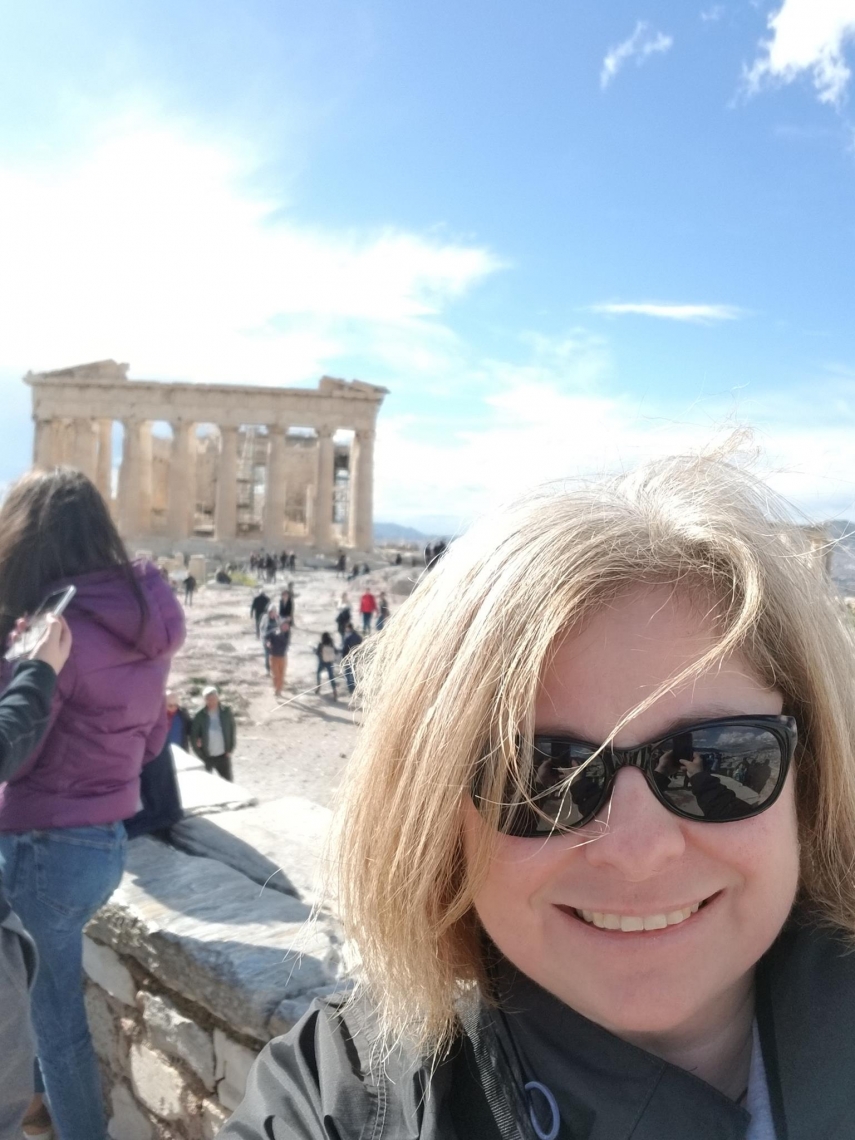Main Content

ADVICE FOR FUTURE STUDY ABROAD PARTICIPANTS:
If you are thinking about studying abroad, find a study abroad program that correlates with your studies or with what you are passionate about. Otherwise you won’t be as engaged and your heart won’t be in the experience. The Office of Global Affairs (OGA) is there to help. You should ask them and consult with them as much as you can. Also, get as much information as you can about the programs you are interested in.
Don’t think you can study abroad because you have a disability or feel you are too old? For one, Disability Resources for Students (DRS) is there to help. If you qualify for DRS services, then you qualify for DRS services while studying abroad. Bot OGA and DRS staff are there to help you and have your best interest in mind. They want this to be a positive experience for you. Secondly, you are never to old to study abroad. It was a great experience for me and my only regret is not knowing sooner that studying abroad was an option for somebody like myself!
Remember, if you qualify for Financial Aid, then Financial Aid can cover all or somne of the study abroad cost. Just keep in mind that you may have to come up with extra funding depending on the cost of the program.
Give yourself time to apply for scholarships. Use the Teaching and Learning Center for help. Some staff specialize in scholarship applications and will take the time to help you. When applying for scholarships, make sure you follow through with your advisors and professors in person/directly communicate with them about ensuring letter of recommendations and verification letters are turned in. Apply for more than one scholarships. Like they say in sales, out of 10 sales calls, you might make one sale. That’s no different with scholarships-they can be competitive. Make sure you have a financial plan and a budget. STICK WITH IT!
The OGA Study Abroad Scholarship was a huge help for me financially. For me the OGA Scholarship funds helped offset cost for medications.
Please do not think that your troubles or concerns while studying abroad are trivial. The OGA staff is there to help you and to advocate for you. It is important to know that people back in the States have your back.

STUDY ABROAD REFLECTIONS:
What I loved about studying abroad was just being immersed in a different culture from what I was accustomed to. I had fun trying to figure out different groceries and trying to buy fresh fruit and vegetables from market vendors in Italian. The biggest key is to not be shy, your efforts will be greatly appreciated. I loved that people in Rome where in general very friendly and outgoing, especially once they saw that I made effort by trying to communicate in Italian, although my Italian was horrible. It was the best way to break down barriers. Italians can come across as rude and loud, but once I overcame that initial barrier, it was not problem.
I also loved working on classwork in a cafe and and observing the “foreign life” unfold in front of me. It was fun for me to watch and observe how the locals interacted with each other. It was also inspiring for my writing assignments. I guess what I am trying to say is not to limit your schoolwork to classroom or your apartment go out there and soak up your surroundings!
Another thing I really learned to appreciate was how accommodating restaurants were to my gluten intolerance. Every restaurant there offered gluten free options, if they were not on the menu I just had to ask. Even fast food places offered gluten free food. I also loved the bus and tram transport. Eventhough they were not very reliable, the rides came in mostly ten to fifteen minute increments, so getting anywhere was a breeze.
Through my study abroad I learned that I am not afraid of going out on an adventure on my own. Although it was fun and a wonderful experience to do things in a group and with the class, I felt safe enough in Rome to venture out on my own. I liked getting lost in my surroundings and discover new things like that way. You just have to be aware that in some places venturing out on your own is not a good idea, so use common sense and healthy judgement.
One of my outlooks on the world that has changed is that poverty is definitely defined differently in other countries. How we define poverty in the US is so different than, lets say, in Sicily. Just seeing how people live there and how they cope with poverty was an eye opener for me. Although I am considered poor here in the States, I feel so much wealthier now in comparison. Another thing I learned is not to be shy to ask for help. When I hurt my knee and then got the stomach flu, it didn’t even dawn on me to ask classmates or the professors for help for things like grocery shopping or getting medications. Your professors are there help and most classmates won’t mind either.
